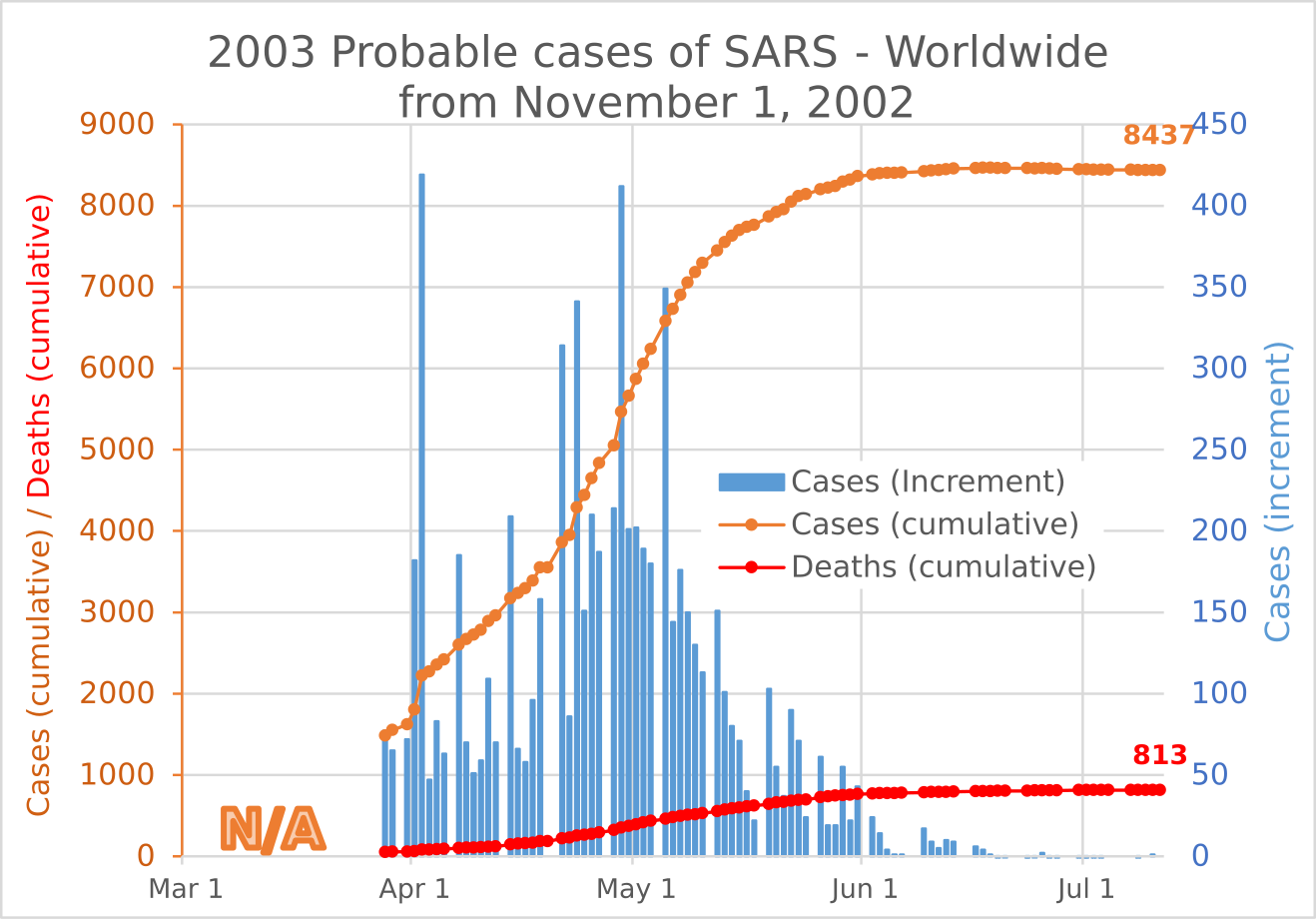Hip
Senior Member (Voting Rights)
It has been talked about the last couple of days for the virus to be transmitted via aerosol (versus only droplets), they don't really know yet though.
https://www.chinadaily.com.cn/a/202002/09/WS5e3fcfefa3101282172760f4.html
"There is no definitive answer as to whether the novel coronavirus can be transmitted via aerosols so far, according to medical expert on Sunday."
This paper provides an interesting definition of aerosols (small droplets) versus large droplets in the context of pathogen transmission. To quote:
Strictly speaking, ‘aerosols’ refer to particles in suspension in a gas, such as small droplets in air. There have been numerous publications classifying droplets using particle sizes over the years.
For example it is generally accepted that:
i) Small particles of < 5–10 μm aerodynamic diameter that follow airflow streamlines are potentially capable of short and long range transmission; particles of < 5 μm readily penetrates the airways all the way down to the alveolar space, and particles of < 10 μm readily penetrates below the glottis.
ii) Large droplets of diameters > 20 μm refer to those that follow a more ballistic trajectory (i.e. falling mostly under the influence of gravity), where the droplets are too large to follow inhalation airflow streamlines. For these particle sizes, for example, surgical masks would be effective, as they will act as a direct physical barrier to droplets of this size that are too large to be inhaled into the respiratory tract around the sides of the mask (which are not close-fitting).
iii) ‘Intermediate particles’ of diameters 10–20 μm, will share some properties of both small and large droplets, to some extent, but settle more quickly than particles < 10 μm and potentially carry a smaller infectious dose than large (> 20 μm) droplets.
So if a pathogen is spread by aerosol (small droplets), face masks which are not close fitting will not be effective, as aerosols can get in, traveling with the airflow that enters through the loose sides of the mask.
However, a tighter-fitting mask will offer protection: the paper says pathogens which are transmitted by aerosol include tuberculosis, measles and chickenpox, and protection from these requires tighter-fitting N95 masks rather than standard surgical masks.
The US N95 mask is similar to the European FFP2 mask. And the higher standard N99 mask (equivalent to FFP3 masks) would also help block aerosol transmission. See respirator specs.
Whereas if a pathogen is not spread by aerosol, but is spread by large droplets, then a regular surgical mask will help (blocking large particle entry to the nose and mouth if someone coughs or sneezes in close proximity to you).
Last edited by a moderator:

